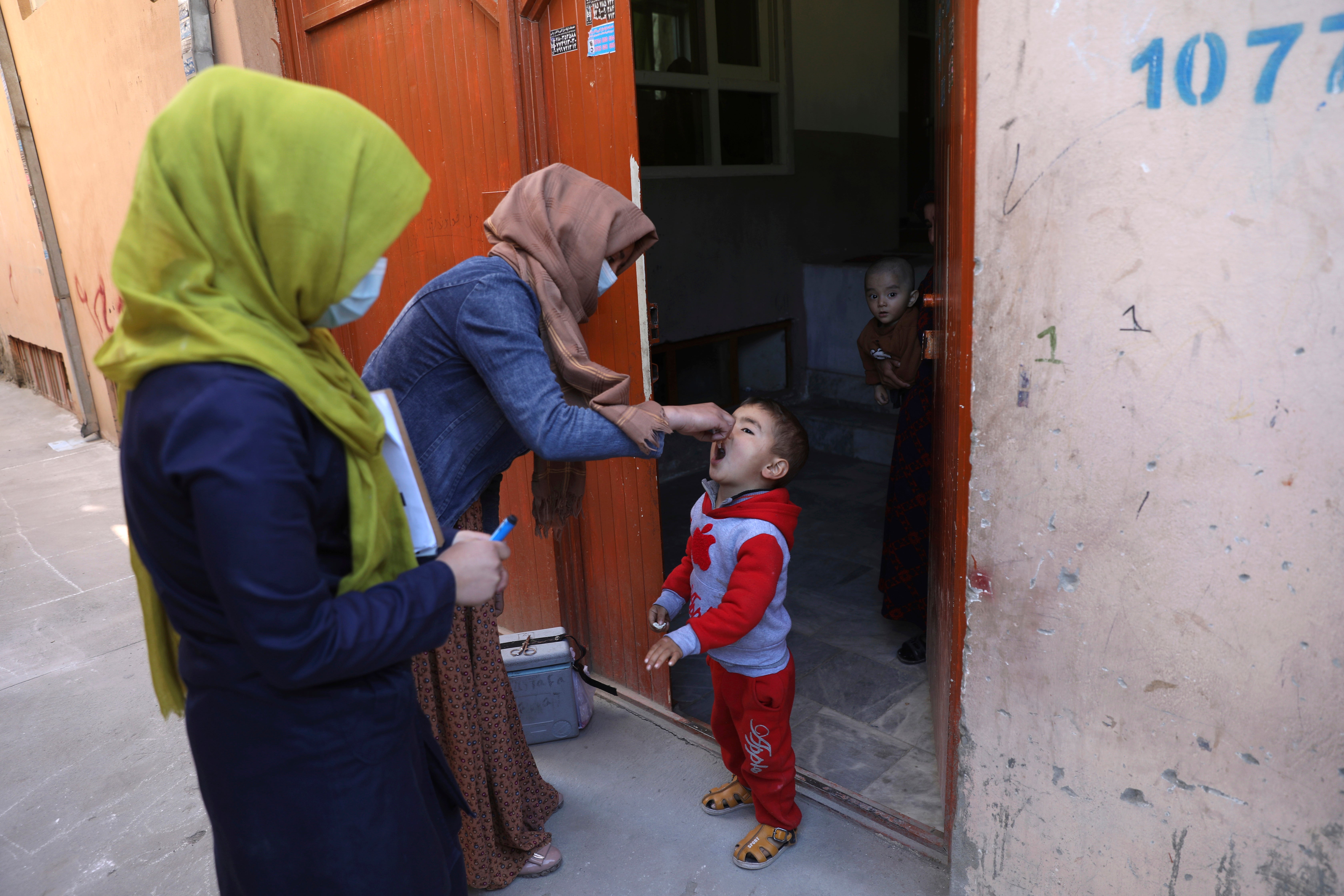UK to slash aid spending on polio and clean water projects
Cuts described as ‘savage’, ‘shocking’ and ‘shameful’ by charities and opposition parties

The UK is to slash spending on polio and water, sanitation and hygiene (Wash) projects in some of the world’s poorest countries as part of plans by Boris Johnson’s government to cut the foreign aid budget, despite the global health challenges posed by the pandemic.
A leaked memo suggested the overall Wash budget will be cut by 64 per cent in 2021/22 compared to 2019, while bilateral aid funding for clean water will be reduced by more than 80 per cent.
The UK spent £207m on bilateral water supply and sanitation projects in 2018 and £176m in 2019, suggesting the budget could fall to £35-40m once the cuts have been imposed.
WaterAid described the proposed reduction as “savage”, warning that sanitation and hand washing were key lines of defence against coronavirus.
In a major blow to efforts to eradicate polio, the government is also said to be cutting funding for those projects by 95 per cent.
The plan, first reported by the development news site Devex, will see the Global Polio Eradication Initiative – an initiaitve which works with the World Health Organisation, Unicef and Gavi, the vaccine alliance, among others – given just £5m this year instead of the £100m it was expecting.
The decision stands in stark contrast with comments made in 2019 by the then-international development secretary, Alok Sharma, warning about the consequences of scaling back polio vaccination programmes.
“If we were to pull back on immunisations, we could see 200,000 new cases each year in a decade,” he said. “This would not only be a tragedy for the children affected and their families, but also for the world. We cannot let this happen.”
The cuts are the first of many that will be necessary to meet the government’s new foreign aid budget.
The Tories were roundly condemned when they announced late last year they would break a manifesto commitment to spend 0.7 per cent of national income on overseas aid – cutting the figure to 0.5 per cent.
Dominic Raab, the foreign secretary, has come under particular criticism, including for having given scant detail of how the cut will affect overseas aid spending when publishing a statement last week.
The leaked memo, first reported by The Daily Telegraph, revealed how FCDO minister Wendy Morton was being advised to sell the cuts to the bilateral Wash budget to minimise the negative reaction from the media and the public.
“We expect criticism on the reduction in spend, particularly as the UK public views water, sanitation and hygiene (Wash) as a priority area for UK aid, because hand hygiene is widely recognised as a critical intervention to counter the spread of Covid-19, and because the cuts are being announced in the year that the UK is hosting Cop26,” the note reportedly stated.

“Try to focus their attention on the fact that we are shifting our approach to strengthening sustainable and resilient national Wash services.”
Preet Kaur, Labour's shadow international development secretary, said the cuts to clean water funding was ”shameful“.
Layla Moran, the Liberal Democrat’s spokesperson for international development, called the move “potentially unlawful”.
She said: “In the middle of a global pandemic no less, water, sanitation and hygiene programmes are being cut to the bone.
“Deep cuts to polio eradication efforts are shocking and could prevent the disease being eliminated.”
Danny Sriskandarajah, Oxfam GB’s chief executive, called the cuts “eye-watering” and “dangerous” and warned it was “likely to delay the global eradication of polio when we are so close to achieving this landmark victory against a cruel disease”.
He added: “This is yet another example of the vital, life-saving work that will stop because of reductions to overseas aid. To cut funding for water, hygiene and sanitation in the midst of a global pandemic is dangerous.
“These eye-watering cuts are bound to result in more illness as vulnerable communities are denied the clean water, safe toilets and handwashing facilities that are crucial to good health and longer term development.”
Tim Wainwright, chief executive of the WaterAid charity, said it was the “worst” timing for such cuts given the pandemic was still raging around the world.
”There is never a good time to cut aid for lifesaving water and sanitation but the middle of the worst pandemic for 100 years must be one of the worst,” he said.
“What is even more incredible is that these savage cuts to the funding of water and sanitation, which are the first line of defence against the twin threats of Covid-19 and the impacts of climate change in the world's poorest countries, should happen just months ahead of the G7 and Cop26 climate summits at which the UK is wanting to demonstrate global leadership.”
WaterAid previously warned that the UK government’s proposed cuts would lead to three to four million people being denied clean water in the next year.
The government defended the plan to cut the overall aid budget, saying it was a “tough but necessary” decision.
“We will still spend more than £10bn this year to fight poverty, tackle climate change and improve global health,” a spokesman said.
“We are working through what this means for individual programmes. Decisions will be announced in due course.”
Join our commenting forum
Join thought-provoking conversations, follow other Independent readers and see their replies
Comments
Bookmark popover
Removed from bookmarks